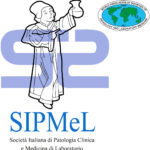
Do not screen asymptomatic subjects. Do not request an extended panel of thyroid function tests in suspected thyroid function impairment; limit to TSH or TSH Reflex in all cases where it is not contraindicated. Do not require FT3 determination for monitoring levothyroxine therapy in patients with hypothyroidism.
There is currently insufficient evidence to assess the benefit-harm ratio of screening for thyroid dysfunction in asymptomatic adults. Extensive panels of thyroid function tests used in hospital and, in particular, outpatient settings have been found to be less effective and efficient than specific requests such as TSH or TSH Reflex. However, these two tests do not allow evaluation of patients such as those with central hypothyroidism, in situations of unstable thyroid function, such as sick euthyroid syndrome and in the early phase of levothyroxine treatment. The few guidelines dealing with FT3 determination in levothyroxine therapy recommend that it should not be performed.
Sources
1. Garber JR, Cobin RH, Gharib H, et al. Clinical practice guidelines for hypothyroidism in adults. Endocr Pract 2012; 18:988-1028. DOI: 10.4158/EP12280.
2. LeFevre ML, U.S. Preventive Services Task Force Screening for thyroid disease: recommendation statement. Ann Intern Med 2015; 162: 641-50. DOI: 10.7326/M15-0483.
3. Plebani M, Giovanella L. Reflex TSH strategy: the good, the bad and the ugly. Clin Chem Lab Med 2019; 58:1-2. DOI: 10.1515/cclm-2019-0625.
4. Brenta G, Vaisman M, Sgarbi JA, et al. Clinical practice guidelines for the management of hypothyroidism. Arq Bras Endocrinol Metabol 2013;57:265-91. DOI: 10.1590/s0004-27302013000400003
5. Thyroid disease: assessment and management. London: National Institute for Health and Care Excellence (NICE); 2019 Nov 20. https://www.nice.org.uk/guidance/ng145 (last accessed March 2024).
Download
PDFAttention. Please note that these items are provided only for information and are not intended as a substitute for consultation with a clinician. Patients with any specific questions about the items on this list or their individual situation should consult their clinician.


Recent Comments